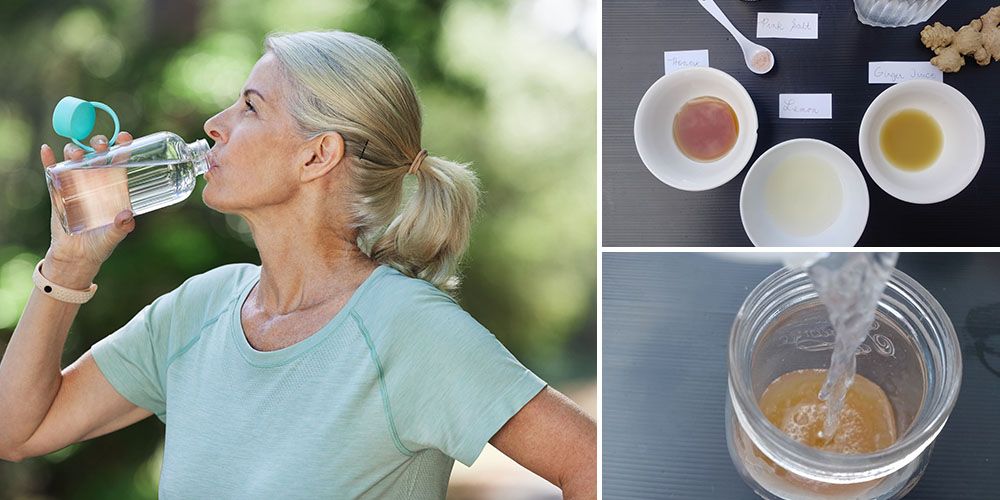
Nature’s Gatorade
Gatorade is a staple drink for athletes, sports enthusiasts and people doing intense physical activities. Each bottle claims to replenish and refuel the body by providing it with electrolytes that are likely lost in profuse sweating. This article will show you how you can make Nature’s Gatorade instead.
What is Gatorade?
Gatorade is a frequently marketed electrolyte drink. Electrolyte is the blanket term for minerals like potassium and sodium in the body that regulate muscle and brain processes. Its main function is in balancing water and maintaining the pH level of the body.
Electrolytes are lost in small amounts through sweating. And unless you are sweating excessively, taking an electrolyte drink every day is not generally recommended. High electrolytes can cause imbalance, are equally harmful and may disrupt the body’s function.
Yes, Gatorade does replenish electrolytes. But, it also gives the body something else that is not really very necessary in excess – sugar. Gatorade also contains artificial dyes that are linked to health issues like hyperactivity and cancer.
Gatorade is only beneficial for elite and high-endurance athletes who can use the much-needed replenishment and burn the sugar in the process. If you are on a light workout, you do not necessarily need it. Electrolytes can be found in your typical diet and fluid intake, which are way healthier than any bottle of sports drink.
The benefit of Gatorade, when taken accordingly, is in replenishing electrolytes such as:
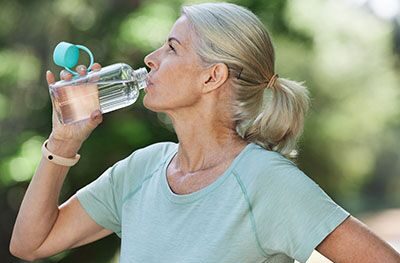
- Sodium
- Potassium
- Chloride
- Calcium
- Magnesium
- Phosphate
- Bicarbonate
- Iron
⇒ Just 1 Cup of This Daily Pumps About 106% Calcium Back into Your Bones (Video)
Other Uses of Gatorade
Water is still the best over sports drinks when it comes to hydration. One research review from the University of California Berkeley points out that sports drinks are only necessary when electrolyte losses and dehydration are significant concerns.
Electrolyte drinks are useful not only for rigorous activities but also for the following conditions when taken moderately, mild dehydration due to vomiting and diarrhea, constipation, morning sickness, heat exhaustion, hangover and muscle cramps.
Nature’s Gatorade
You can prepare your own sports drink at home without worrying about sugar and preservatives. Several fruits, vegetables and some herbs in the form of tea can help replenish the electrolyte balance and energize the body.
A pinch of salt and sugar is often added to it. These ingredients are needed to maintain the fluid level and conduct nerve impulses. They are also vital ingredients used in preparing a homemade oral rehydration solution that has worked in preventing dehydration for many years.
Coconut Water: Coconut water is a standalone natural sports drink that contains a high level of electrolyte. It has the highest amount of potassium which may help meet dietary needs. Coconut water also has low sugar which can help greatly in the rehydration of diabetics.
Green Tea: A cup of green tea is a good source of electrolytes such as potassium, magnesium and sodium. Green tea (Camellia sinensis) is a recuperative herb that restores energy and strength. It is an excellent substitute for soda and sports drinks, especially if you are on a diet.
Nettle: Nettle, or dwarf nettle (Urtica urens), is a close relative of stinging nettle (Urtica dioica) with an almost similar medicinal property. It is traditionally used for treating hives but may also help in balancing electrolytes in the body. Nettle leaves have rich mineral content that strengthens the bones and connective tissues.
Basil: Basil (Ocimum basilicum) is a tonic herb that can help with a wide variety of health conditions. It contains a range of nutrients and minerals, and is essentially rich in magnesium and potassium. Basil is a revitalizer that relieves fatigue and boosts the energy post-workout.
Ginger: An infusion of raw and organic ginger rhizome may help boost electrolytes and tame a nauseous stomach. It is a good source of magnesium and potassium to alleviate muscular pain. Ginger (Zingiber officinale) is excellent for replacing electrolytes lost in sweating, vomiting or hangover.
African Star Apple: African star apple (Chrysophyllum albidum) is a fruit-bearing tropical tree used for treating diarrhea and dysentery, particularly its tree bark. Star apple fruit also contains micronutrients like calcium, phosphorus and calcium that may help maintain the electrolyte balance. In remote villages, a decoction of star apple tree bark is taken as first aid for dehydration.
Hibiscus: Roselle (Hibiscus sabdariffa) is one of the herbs used in herbal infusions for regulating electrolyte balance. It contains a trace amount of minerals that are needed for rehydration and prevention of muscle cramps. It has iron, potassium and calcium that boost the minerals and electrolytes when mixed with other beverages such as coconut water.
Rhodiola: Rhodiola rosea, or golden root, is a traditional herb used to boost stamina and energy levels. Today, it is marketed in the powdered root form as an adaptogen for alleviating physical and mental stress. Rhodiola can promote endurance and is used for increasing resistance in training workouts. Rhodiola rhizome also contains minerals to increase the electrolytes when taken as a tea.
DIY Gatorade
Creating an herbal sports drink at home is never complicated. You can use different herbal ingredients available, even those that you can forage in your backyard.
A homemade alternative to Gatorade is cost-saving. It will also save you from artificial sweeteners and preservatives present in all store-bought beverages. Electrolyte drinks, even herbal ones, should be taken in moderation and used along with water.
⇒ How to Collect Clean, Drinkable Water from Plants (Video)
The base recipe for homemade Gatorade is:
- 2 cups water
- 1 tbsp sugar (honey, agave or maple can be used as a substitute)
- ¼ tsp pink salt, sea salt or any pure salt
Mix everything until well combined and serve with ice.
From this base recipe, you can add other herbs and spices to boost its flavor and effectiveness. It is like having other variants of store-bought Gatorade in different colors in supermarkets.
For a citrusy and refreshing drink, try this lemon and ginger electrolyte drink.
Lemon-Ginger Homemade Gatorade
Ingredients:
- 1 tbsp ginger juice from freshly grated ginger rhizome
- 2 tbsp freshly squeezed lemon juice
- 1 tbsp honey
- ¼ tsp pink salt
- 2 cups filtered water or sparkling water
Steps:
- In a pitcher or glass jar, add the ginger juice, lemon juice, honey and salt. Mix to combine.

- Pour water over the mixture and mix well.

- Refrigerate or pour over ice cubes and enjoy. If you want to keep it in the fridge, consume the DIY Nature’s Gatorade within two days.

Boost Your Drink With These Herbs
- 2 cups of strongly brewed hibiscus tea for a floral red Gatorade
- 2 cups freshly squeezed orange juice for a sweet and orangey drink
- 2 cups unsweetened coconut water for a tropical and superior hydrating drink
- 4 tbsp green tea leaves and cucumber slices to help you hydrate and cool down
Nature’s Gatorade is all about replenishing lost electrolytes or minerals that are lost in excessive sweating. Under normal conditions, water and some natural electrolyte drinks are good enough to keep your internal fluid in balance.
The key is drinking the recommended amount of water in a day and eating a balanced diet to keep the electrolytes in check.

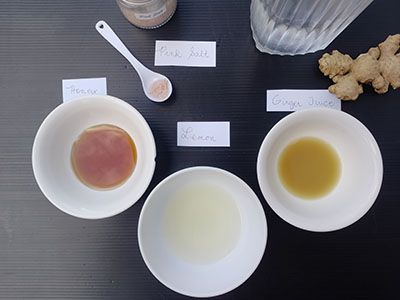
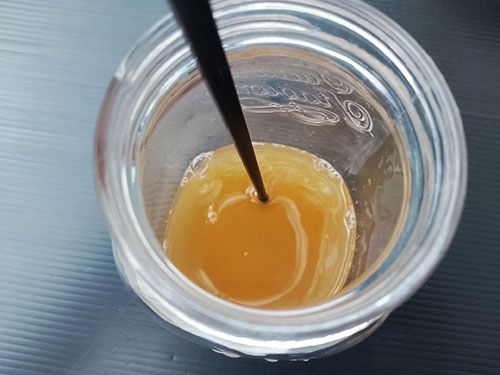
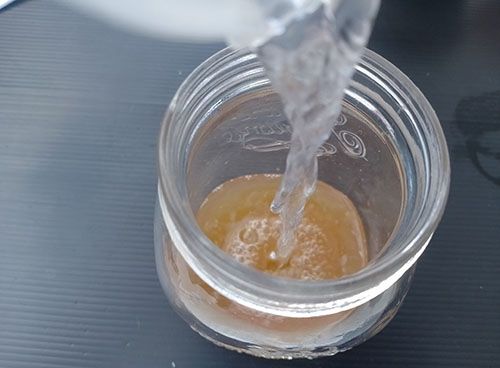
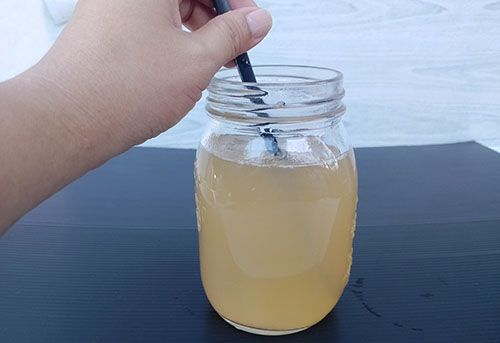
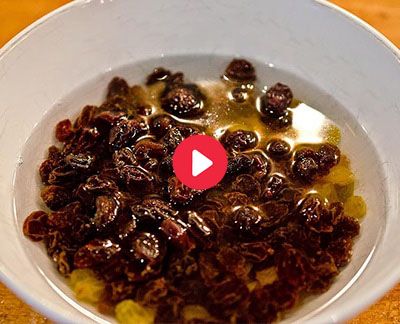
Lovely!! Simple, tasty and productive 💕
Hi Clarissa,
Thank you for your comment!
We’re happy to hear you enjoyed the recipe.
Many blessings and good health!
Ronald Rose